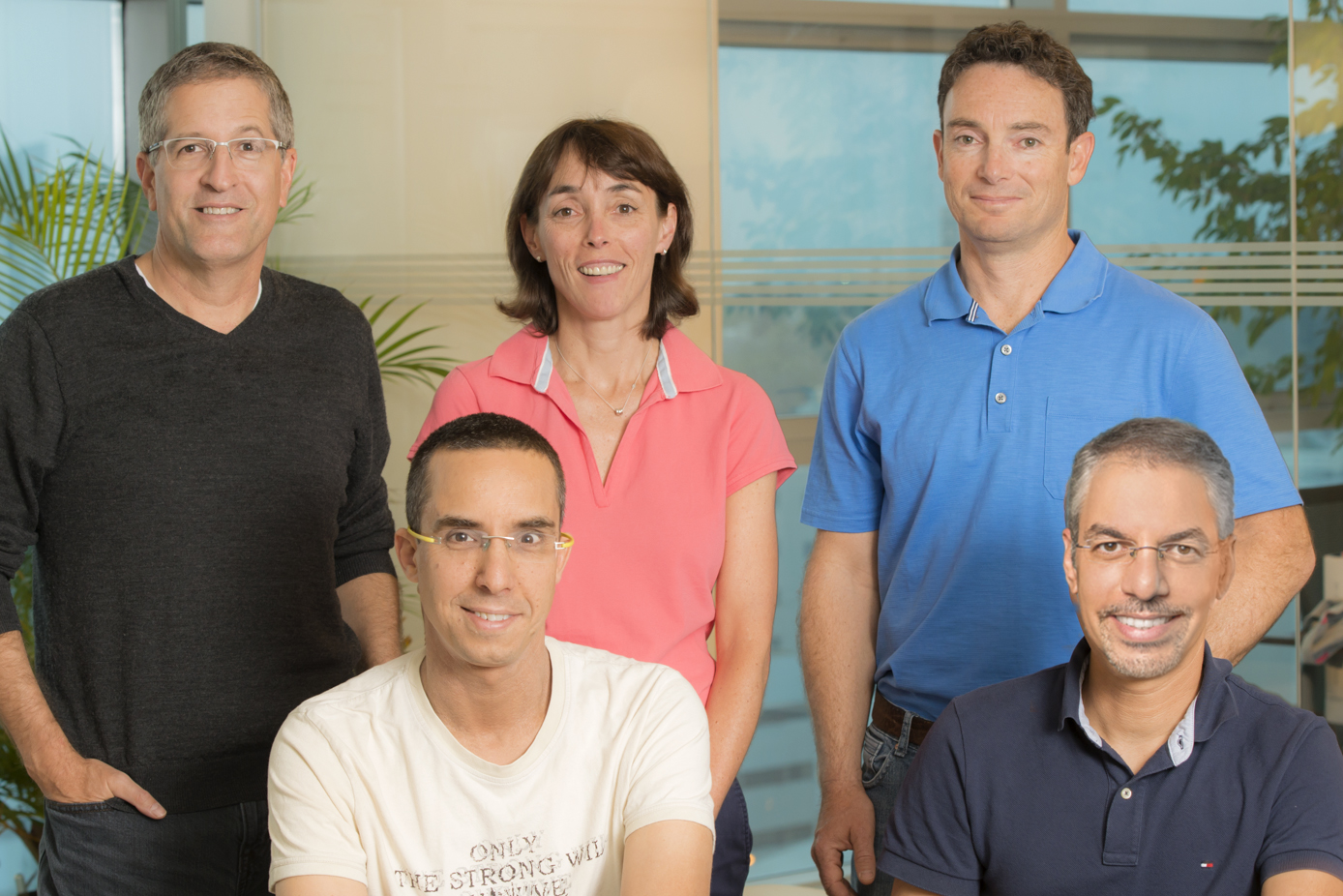London and Tel Aviv based VC firm 83North has closed out its fifth fund at $300 million, as we reported earlier. It last raised a $250 million fund in 2017 and expects to continue the same investment mix, while tracking developments in emerging areas like healthcare AI and autonomous vehicles.
In a conversation with general partner Laurel Bowden, the veteran investor shared a few further thoughts with Extra Crunch — talking about the tech scene in Europe vs Israel, what the firm looks for in a team and tips on scaling globally.
The interview has been lightly edited for clarity.
TechCrunch: Is Europe starting to catch up to Israel when it comes to deep tech startups?
Laurel Bowden: We clearly think we have in our portfolio some deep tech. And in other VC portfolios too — there’s clearly some deep tech [coming out of Europe]. And then on the reverse side you’ve seen more consumer-related stuff coming out of Israel. But still if you take a blanket look, we see more data infrastructure, security, storage coming out of Israel than we see in Europe — that’s for sure.
I don’t think that’s changed but I would say five years ago we really [never] saw any consumer stuff in Israel — that’s just not the case. And similarly even in our portfolio, particularly in hubs around certain areas, you do see deep tech in Europe.
The thing with Israel that’s really fundamental is whatever you build, it doesn’t matter whether it’s consumer tech or deep tech, you have to look outside immediately for an external market. And I think that drives a certain kind of founder behavior and a certain kind of immediate need…
Before you’ve even got the product launched you’re talking to potential customers. Which is slightly different in Europe in that they can be inwardly focused in their own market for a period of time. And I think that makes the Israeli startups very US-centric.
TechCrunch: 83North has previously invested in adtech which is an area that’s coming under increasing regulatory scrutiny in Europe — especially around privacy. How do you feel about adtech as an investment opportunity right now?
Bowden: We just actually had a very big exit that I think was announced in Israel. We sold one of our companies called Supersonic Ads to a company called IronSource — and there’s just been a very significant round in Israel in that and we sold out completely.
We’re always nervous of saying we’ll never invest in this area — because I don’t think that’s true. But I think adtech is a tricky area. So we will look at it, that’s for sure. But, as I said, we’ve just had quite a significant exit in Israel. We haven’t done any new investments in that area in the last couple of years.
That’s not to say I don’t think there are interesting companies. And we have looked at some interesting stuff — but we just haven’t done anything. And of course, what you alluded to [regulation], we are wary of as well, so I guess that’s possibly a reason.
And even besides the regulatory attention, when it comes to adtech we also want to believe that the ad company’s doing the right thing — and I think that’s also the other side of it.
TechCrunch: Are you worried about rising regulatory attention on the Internet generally — in terms of as a potential dampener to growth and opportunity?
Bowden: No. If anything the startup scene is very buoyant everywhere in Europe — and seen as just a fantastic career opportunity for young people. So no absolutely we think there’s really a lot of opportunity.
And obviously… there’s been a number of significant exits in Europe which of course drives more interest in the sector and the area. And generally — not everywhere — but generally regulation in countries is enabling easier access to funding and just easier rules around getting companies going. It’s definitely become easier over the year or so.
TechCrunch: You’re based in London. How has Brexit affected how and where you’re looking and investing?
Bowden: The short answer is it hasn’t. The funny thing is that when we raised in 2017 actually our fund — not just me — had done a lot of investments outside of London… in 2015, ’16, ’17. We’d had a lot of investments outside of the UK. Almost before Brexit.
The strangest thing is that actually in the last few years we’ve done more [UK] investments — we’ve got a couple that haven’t been announced that have been done in London.
We did announce one earlier this year in company called Lenses. So actually we’ve done more in London. And I just think the UK, and London in particular, have been so open — firstly to immigration, which I’m a huge fan of. And so open to the startup scene and made it easy to do business. And coupled with the fact that it’s English — so it’s a hell of a lot easier to open a company here and then expand to the US than to open it somewhere else in Europe.
Of course there’s the nervousness we all feel about Brexit. But from a tech point of view I definitely haven’t seen or felt anything. There feels like there’s just as much opportunity.
I think there’s more risk for existing companies. We have a company called Ebury — founded in England with Spanish founders and — from a regulatory point of view — they had to open an office in Europe. And obviously they then grew their Spanish office more than they might have otherwise. So from existing companies you might see growth in Europe where there could have possibly been more growth in London but otherwise no.

TechCrunch: Might 83North see a need to open an office elsewhere in Europe?
Bowden: Not right now. Unless you know… we have some more comments like we had from [former UK prime minister] Theresa May about the stateless, rootless ‘international’.
But no. We’ll remain in London. It’s the tech hub of Europe — it’s very easy to get everywhere else in Europe and I don’t think that’s going to change.
TechCrunch: What changes are you seeing in how startups are raising money in Europe, including via non-VC/alternative funding routes?
Bowden: I guess in every asset class, in every class of funding there’s been growth. There are more angels, there are more ex-entrepreneurs with a lot of money than there were 15 years ago — that’s for sure. There are — at least in London — more seed funds. And there’s just more capital. And then even in the stage I invest there is without question more.
Besides funds being based here there are more funds where people fly in, either actually from Israel as well as from the US. So I just think across the board there is a bigger pool of capital. And of course the exits also make people aware of it. You have more people — especially at the angel level — interested in investing. And often when we look at companies there’s already been money from certain individuals. Or angels. Absolutely.
TechCrunch: What does 83North look for when it decides to invest in a startup?
Bowden: The thing that I and my partners like is when we see a product we like and understand. Every time I’ve made a mess of an investment is maybe when I haven’t understood the product enough. When we like the product and understand the product. Can understand the customers or potential customers.
So somebody sending us things that are within the realm of where we’ve related to where we’ve invested before. Never the same. We’ve never invested in the same. But related — that’s always interesting.
Then, the entrepreneur. We don’t do a lot of deals so we really like to work very closely with our founders. If people actually call any of them they would find that. And so, I think that, in the same way we want to have a good relationship with our founders we want our founders to have a good relationship with us.
You can see from our portfolio, whether you go back to… Hybris — Carsten Thoma, an investor actually co-invested with us, is on the board of many companies with us, that was one of our portfolio companies; Juan Lobarto of Ebury is a driver to us and co-investor — and I could go on and on, I could give you another list of another ten — so you can see we’re quite close to our founders.
And 1) I think we are helpful to the companies and 2) they become kind of part of the family — again because we don’t do a lot of deals. We really don’t. Probably about one per partner per year, maybe a little bit more. So those are some of the key things about companies looking to talk to us. Or us looking to talk to companies. I think it’s both ways isn’t it.
And then the only other thing I would say to founders is it’s not all — but most of our companies — some of them we found… in our own work. But otherwise, there’s been some link or connection. But most VCs if they don’t tell you that, that just is the case. There’s going to be some link or connection to someone, somewhere that we know.
TechCrunch: 83North has a US link (having spun out of Greylock). What advice do you give founders when it comes to scaling globally, especially in terms of building teams?
Bowden: Every company’s different but the companies that we’ve invested in — I can tell you that first going to the US is always a hiccup. It’s hard. But I think firstly we always recommend focus.
So if you’re in Paris and you want to expand we always say go with the US, go to Boston or New York or wherever you want to go but don’t try and go at the same time to Frankfurt and London and Madrid. Focus is super important, it’s just very hard to manage many many geographies.
Secondly, it’s always very helpful when one of the founders moves — because I think they bring both the culture of the company. They know everybody back in the original head office and it will add huge credibility. And also normally they know how to sell their product.
So we’ve always found that hopefully there’s two or more founders and the one moves to the US. We always say try to take one of your best people with you. It’s really hard to wrench them out of Paris… or Munich but do it because then there’s two of you there and you can establish the base.
And then – and this sounds very generic but – hire the best you can. And try and hire for a year or two years ahead of where you are. Because you’re not aiming for just today, you’re aiming to be much bigger. So those are a few things. There are a lot more — and a lot in the detail.































Comment